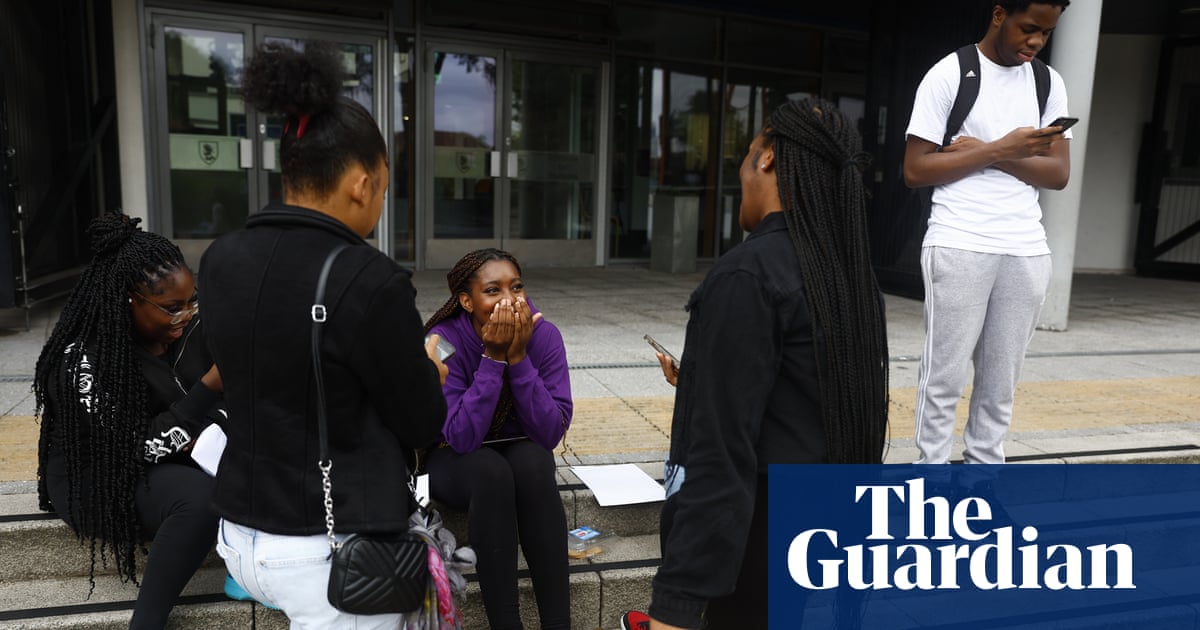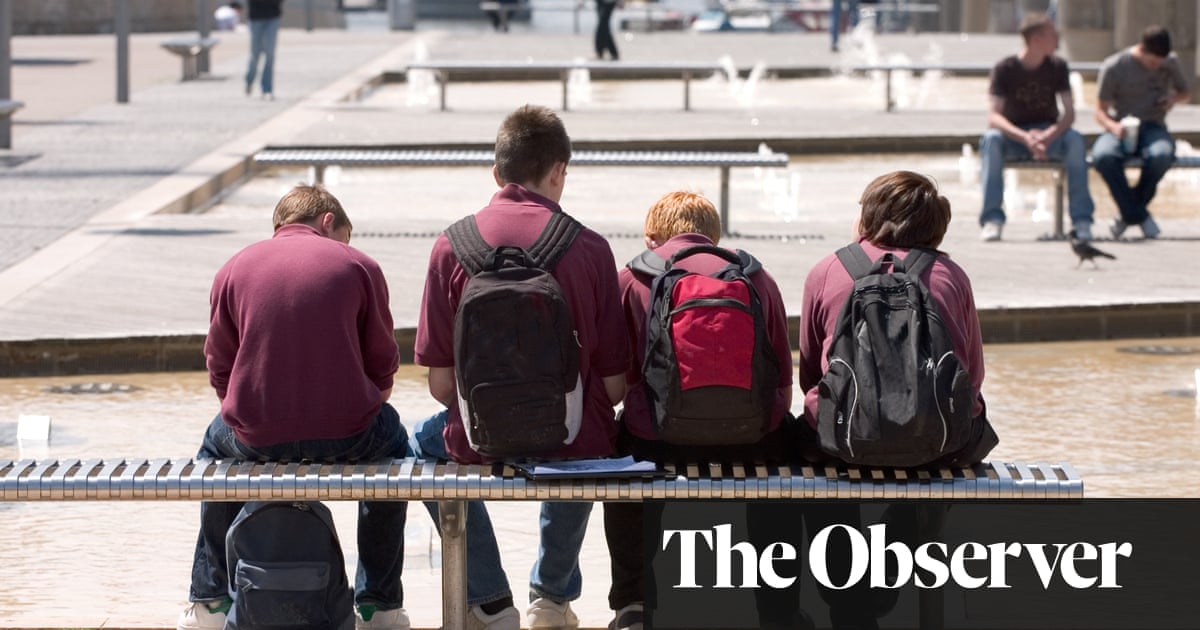
The gap between private and state school A-level grades has grown to its widest in the modern era as part of a record-breaking set of results in which black pupils and male pupils also received lower grades than their peers.
After a year of disruption and school closures during the pandemic, nearly 45% of A-level entries across England, Wales and Northern Ireland were awarded top grades of A or A*, up from 38% in 2020 and 25% in 2019.
But teacher-assessed grades, which replaced exams across the UK, disproportionately benefited those at independent schools, where the proportion of top grades rose nine percentage points to 70%, compared with six percentage points elsewhere.
The gender gap also reached its highest level in 10 years, with the rate of A* and As standing at 46.4% for girls versus 41.7% for boys – a further reversal of the trend seen in 2017 and 2018, when boys last outperformed girls in exams.
In maths, female pupils overtook their male peers for the first time in the proportion of A*s as the gap overall widened across all subjects other than Spanish and German.
Jill Duffy, the chief executive of the OCR exam board, said “girls tend to perform better in more continuous assessment” but added: “We also know the pandemic has had wider impacts not just on education but also on mental health, and recent reports have suggested that has hit young men more than females.”
As school leavers celebrated the results and secured university places, or entered the clearing system, in record numbers, the head of the exam regulator, Ofqual, vowed that formal exams would return next year.
Simon Lebus, the interim chief regulator of Ofqual, defended the process used after the scrapping of national exams in January by the education secretary, Gavin Williamson. Lebus said it would have been unfair for students to have sat exams because of the “significant disparities” in teaching between schools before and during lockdown.
He said: “The pandemic will have had different impacts on students’ opportunities to learn, and the mechanisms we normally use to secure standards over time have not been deployed this year.
“We expect to get back to exams and formal assessments next year because although exams are not perfect, they have proven to consistently be the best way of assessing what a student knows, understands and can do.”
Lebus said Ofqual and the Department for Education would announce early in the autumn a joint consultation on how exams would proceed next year. But experts warned that A-level candidates, by 2022, would have faced significant disruption to their learning over the past two years.
Ministers are reportedly looking at changing the way A-levels are graded as a way to curb the recent inflation, with a senior DfE source telling the Daily Telegraph: “There is debate to be had about that … We are not ruling it out.”
Among the schools celebrating on Tuesday was Brampton Academy in Newham, east London, where 330 in the school’s selective sixth form won places at Russell Group universities. It included 55 pupils who got places at Oxford or Cambridge and one who was accepted by Harvard. In 2014, just one Brampton student received an Oxbridge offer.
Figures published by the Joint Council for Qualifications showed there was a more than 20 percentage point gap in the proportion of top grades between independent schools and state schools in 2019, the last year when formal exams were taken.
This year the gap widened to 31 percentage points between independent schools and comprehensives in England, while the gap between independents and state sixth form colleges was even wider, at 35 percentage points.
David Robinson, of the Education Policy Institute, said the widening gap could be due to the greater disruption and lost learning time endured by many groups, with the chances of black students gaining A* or A grades declining, alongside those from disadvantaged backgrounds.
“Lost learning has affected different groups differently and that’s probably why students from disadvantaged backgrounds are among the most affected,” Robinson said.
Private school pupils might have also benefited from parental pressure on teachers, while the higher level of prior attainment in independent school pupils was a contributing factor.
“Even controlling for prior attainment, students from disadvantaged backgrounds were worse off by at least a tenth of a grade compared to those from more affluent backgrounds, even among students with the same GCSE grades,” Robinson said.
Kate Green, the shadow education secretary, said that while students deserved to be congratulated for their hard work, “the Conservatives’ chaotic last-minute decision making has opened the door to unfairness”.
She added: “The increase in A grades is 50% higher among private schools, while black students, students on free school meals and in areas of high deprivation, are being increasingly out-performed by their more advantaged peers.
“The government’s measly recovery plan will see half a million students leave school this summer without any support to recover lost learning or boost their wellbeing.”
Analysis published by Ofqual said there were “lower outcomes” for black candidates, those on free school meals, and those with a high level of deprivation.
Regional breakdowns showed that two-fifths of all grades achieved by students in London were A or above, after a bigger increase than other parts of England and double the increase in the north-east.
Lee Elliot Major, a professor of social mobility at the University of Exeter, said: “It is deeply concerning to see widening socio-economic divides in this year’s A-level results, confirming our worst fears – the pandemic has exacerbated educational inequalities outside and inside the school gates.
“The government urgently needs to set out its plans for a return to a national exam system from next year that is fair to all pupils irrespective of what school they attend or home that they come from.”












